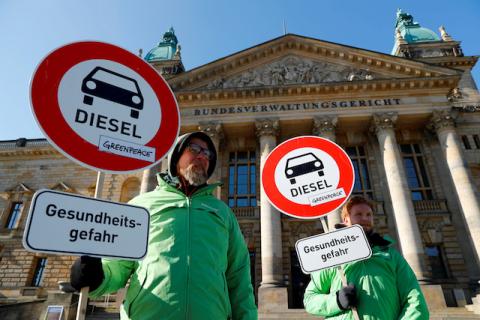Advertisement
Mayors of 15 major EU cities ask for funds to fight climate change
BRUSSELS (Reuters) - Major European cities are asking the European Union for direct access to funds in the bloc's next long-term budget to help the EU reach its goal of becoming neutral in terms of carbon dioxide emissions by 2050, a letter showed on Wednesday.
Mayors of 15 large European cities told European Commission President Ursula von der Leyen that they could act faster than national governments and were less constrained by pressures from the fossil fuel industry.
"The fight against climate change will be won or lost in cities," said the mayors of Bratislava, Budapest, Prague, Warsaw, Berlin, Vienna, The Hague, Athens, Riga, Vilnius, Tallinn, Frankfurt, Kosice, Milan and Strasbourg.
Almost three quarters of Europeans live in urban areas, which now receive EU money with national governments acting as intermediaries, mostly from the so-called cohesion funds meant to equalise living conditions across the 27-nation bloc.
"We urge European institutions to recognize cities' and urban areas' pivotal role in implementing strategic green policy objectives and to allocate directly accessible, city-tailored EU funds to secure those outcomes," the letter said.
Pressure from miners and the coal-fuelled energy sector is strong in central European countries like Poland and Germany.
But some mayors, who come from parties in opposition to their central governments in capitals such as Warsaw, Budapest or Prague, also face political problems of cooperation with their national authorities.
By 2050, the EU aims not to be emitting any more carbon dioxide than it absorbs, making it "neutral" from the point of view of climate change and helping curb global warming.
EU leaders are to discuss the size of the 2021-2027 budget at a special summit on Feb. 20, although negotiations on its myriad details are likely to last until later in the year.
Under the current plan, the EU wants to earmark around 250 billion euros ($272.55 billion) to fighting climate change, mainly through reducing CO2 emissions in industry, agriculture, energy and transport.
"Our efforts can only succeed if the EU puts regulatory and financial mechanisms in place that provide the necessary means for local authorities to act," the mayors' letter said.
(Reporting by Jakub Riha and Jan Strupczewski; Editing by Mark Heinrich)



















Add new comment